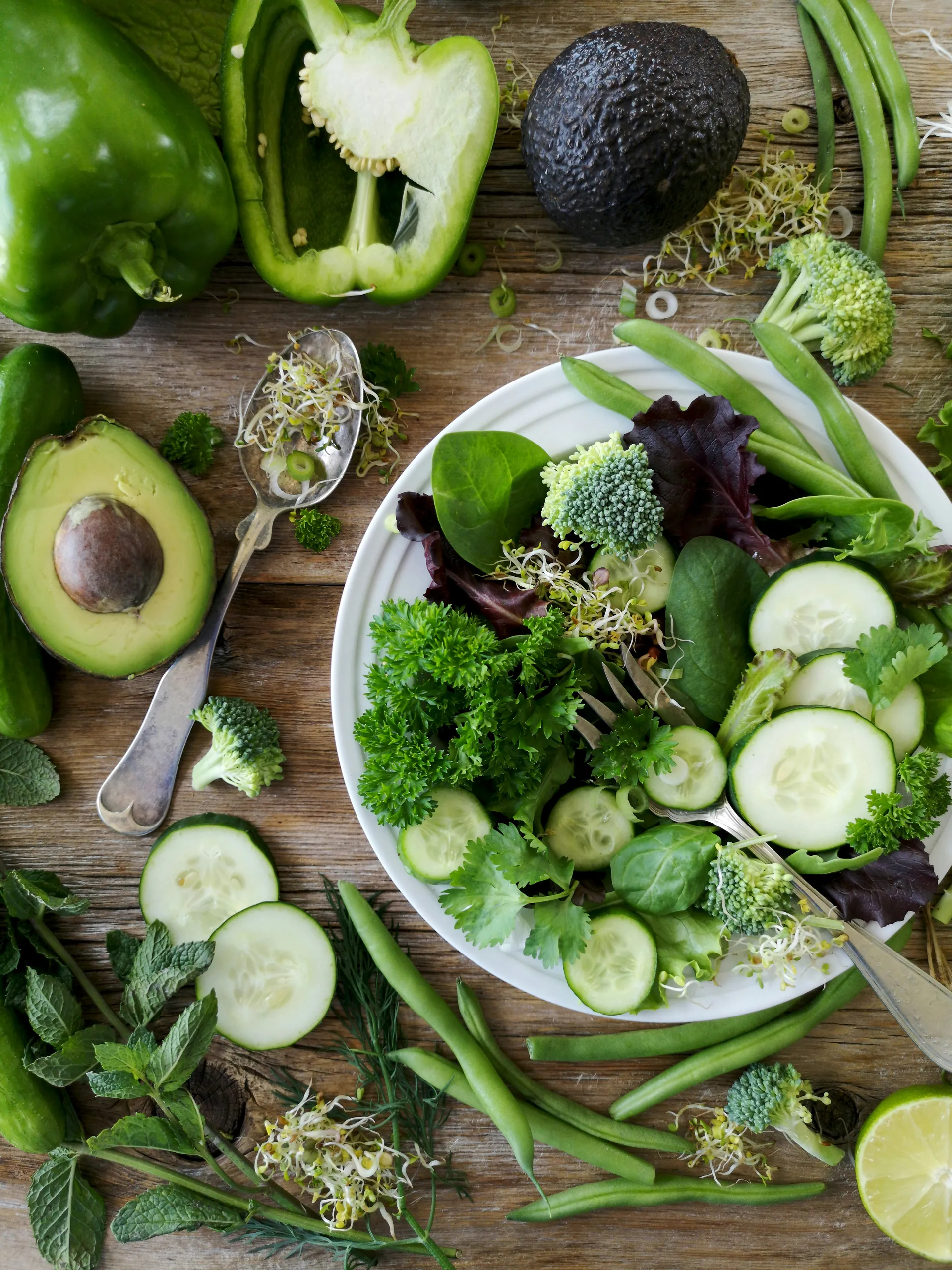Welcome to The Well, your comprehensive wellness center located in Kettering, Ohio. We are dedicated to offering true healthCARE to everyone who steps through our doors. More than just a wellness center, The Well is a community—a safe and healing space for individuals who feel let down by mainstream healthcare systems. Here, you’ll find a diverse team of practitioners, including midwives, birth and postpartum doulas, cancer doulas, pelvic floor therapists, massage therapists, lactation consultants, and more.
Our mission is to provide Whole Person Care™, addressing every aspect of your health and well-being. We believe that every body knows how to be healthy, every mind knows how to engage, every heart knows how to love, and every spirit knows how to connect. Our services and educational opportunities are designed to help you cultivate these beliefs and share them with your community.
Whether you want to explore whole-person nutrition, join fitness classes, or simply enjoy a cup of coffee in our welcoming space, The Well is here to support you. This guide will introduce you to our offerings, from nutrition and fitness to mindfulness and emotional well-being, helping you achieve a balanced lifestyle. Buy now to start your wellness journey with us and make every moment count.
Let’s embark on this journey together and discover how The Well can help you live a life filled with health, wellness, and community.
Nutrition and Diet

Understanding Nutritional Basics
When it comes to nutrition and diet, understanding the basics is essential for making informed choices that support your overall health and wellness. Nutrition is the science of how the body uses food to sustain life, grow, and repair itself. It involves the intake of nutrients such as carbohydrates, proteins, fats, vitamins, and minerals, each playing a vital role in different bodily functions.
Carbohydrates, for example, are a primary source of energy for the body. They come in two main forms: simple (sugars) and complex (starches and fibers). Proteins are essential for building and repairing tissues, including muscles, bones, and skin.
Fats are another critical energy source and also help in the absorption of certain vitamins.
Vitamins and minerals are micronutrients that, although needed in smaller amounts, are vital for various bodily functions. For instance, vitamin C is important for immune function and collagen production, while calcium is essential for bone health.
Conscious Eating Practices
Conscious eating, often referred to as mindful eating, is a practice that complements a balanced diet by ensuring you are fully engaged with your food. This approach involves eating slowly, savoring each bite, and paying attention to your body’s hunger and fullness cues.
As outlined in mindful eating practices, it is important to eliminate distractions during meals, such as turning off the TV and putting away your phone. This allows you to focus on the sensory aspects of your food—its smell, texture, taste, and appearance.
By doing so, you can better distinguish between physical and emotional hunger, reducing the likelihood of overeating or making unhealthy food choices.
Additionally, mindful eating encourages you to appreciate the food you eat and the effort that went into producing it. This includes considering the people involved in growing and preparing the food, as well as the environmental factors that contributed to its availability. This appreciation can foster a more positive and respectful relationship with food.
Dietary Plans for Wellness
Dietary plans tailored for wellness go beyond just following a specific diet; they involve creating a personalized approach to nutrition that aligns with your health goals and lifestyle. For instance, if you are aiming to improve your mental health, a diet rich in omega-3 fatty acids, antioxidants, and fiber can be beneficial.
For physical wellness, a balanced diet that includes a variety of whole foods such as fruits, vegetables, whole grains, lean proteins, and healthy fats is essential. It is also important to stay hydrated by drinking plenty of water and limiting sugary drinks.
Moreover, dietary plans should be flexible and sustainable in the long term. Restrictive diets that focus on deprivation rather than balance can lead to unhealthy relationships with food and are often difficult to maintain. Instead, focus on making gradual, sustainable changes that you can incorporate into your daily life.
This might include meal planning, cooking at home, and being mindful of portion sizes.
Physical Activity and Fitness

Building a Sustainable Exercise Routine
Creating a sustainable exercise routine is essential for long-term health and wellness. The key to sustainability lies in setting realistic goals and integrating exercise into your daily routine. Start by choosing activities you enjoy, whether it’s walking, dancing, or swimming.
This ensures that you are more likely to stick to your routine because it aligns with your interests and preferences.
Set small, achievable goals, such as working out for 15 minutes three times a week. As you get into the habit, you can gradually increase the duration and intensity of your workouts.
Consistency is vital, so schedule your workouts like any other important task and set reminders to ensure you stay on track.
Variety is also essential to keep your routine exciting and prevent boredom. Mix different types of exercises, such as strength training, cardio, and outdoor activities like hiking or biking. This not only keeps your workouts fun but also challenges different muscle groups and reduces the risk of injury.
Listening to your body is essential. Rest days are as important as workout days, as they allow your body to recover and repair itself. Avoid overexertion, and take breaks when you feel pain or extreme tiredness.
Tracking your progress through a journal or fitness app can also help motivate you and adjust your plan as needed.
The Benefits of Regular Physical Activity
Regular physical activity offers a myriad of benefits for both physical and mental health. Physically, exercise helps maintain a healthy weight, improves cardiovascular health, and strengthens muscles and bones.
It also reduces the risk of chronic diseases such as heart disease, diabetes, and certain types of cancer.
Mentally, exercise is a powerful tool for improving mood and reducing symptoms of anxiety and depression. Physical activity stimulates the release of endorphins, which are natural mood-boosters. Additionally, exercising outdoors can further enhance mental well-being by providing exposure to natural light and fresh air.
Regular physical activity also enhances cognitive function and can improve sleep quality. It fosters a sense of community when done in group settings, such as fitness classes or team sports, which can further support mental health and overall well-being.
Innovative Fitness Trends
In recent years, several innovative fitness trends have emerged that make exercising more engaging and accessible. One such trend is the rise of eco-friendly fitness routines.
This includes choosing sustainable exercise equipment made from low-impact materials, such as eco-friendly fabrics and recycled rubber, and opting for outdoor activities that reduce carbon footprint.
Low-impact exercises like yoga and Pilates have also gained popularity for their focus on strength, flexibility, and mental well-being. These exercises require minimal equipment and can be done at home or in a class setting, making them highly accessible and sustainable.
Technology has also played a significant role in fitness innovation. Apps and online programs that offer guided workouts, tracking features, and community support have made it easier for people to stay motivated and consistent with their exercise routines.
For example, programs like strength training for anxiety, which combine physical exercise with mental health benefits, are becoming increasingly popular.
Mindfulness and Emotional Well-being

Techniques for Stress Reduction and Management
Mindfulness techniques are powerful tools for reducing stress and managing emotional well-being. One highly effective method is breath focus, which involves taking long, slow, deep breaths to calm the mind and body.
This technique, also known as abdominal or belly breathing, helps disengage the mind from distracting thoughts and sensations, promoting a state of relaxation.
Another valuable technique is the body scan, which combines breath focus with progressive muscle relaxation. By concentrating on different parts of the body and releasing physical tension, you can enhance your awareness of the mind-body connection and significantly reduce stress levels.
Guided imagery is another powerful approach, where you visualize soothing scenes or experiences to relax and focus. This method can reinforce a positive self-image and is particularly effective when tied to personal significance and calming imagery.
Mindfulness meditation, which involves sitting comfortably and focusing on the present moment without drifting into past or future concerns, has been extensively researched and proven to reduce anxiety, depression, and stress. It improves attention, enhances emotional regulation, and fosters a mental state of calm concentration and positive emotions. Get it now and experience how mindfulness can transform your approach to emotional well-being today.
Importance of Sleep and Recovery
Sleep and recovery are essential components of emotional well-being. Adequate sleep helps regulate emotions, reduce stress, and improve cognitive function. During sleep, the body repairs and rejuvenates itself, supporting both physical and mental health.
Establishing a consistent sleep schedule, creating a relaxing bedtime routine, and ensuring a sleep-conducive environment can significantly enhance sleep quality. Practices like avoiding screens before bedtime, limiting caffeine and alcohol intake, and engaging in relaxing activities such as reading or meditation can also be beneficial.
Beyond sleep, prioritizing recovery is equally important. This includes taking rest days from physical activity, participating in hobbies that bring joy, and practicing self-compassion.
Self-compassion involves treating yourself with kindness and understanding, particularly during challenging times. This can help mitigate stress and boost overall emotional well-being.
Building Healthy Relationships
Healthy relationships are a cornerstone of emotional well-being. Building and maintaining strong, supportive connections requires several key practices.
First, practicing active listening and empathy helps deepen understanding and connection with others.
Effective communication is also essential. This includes expressing your feelings and needs clearly while being open to feedback and the perspectives of others.
Healthy relationships thrive on mutual respect, trust, and a willingness to support each other through life’s challenges.
Participating in community activities and joining social groups or clubs aligned with your interests can help you build a supportive network. At The Well, we offer a variety of community programs and fitness classes that provide opportunities to meet new people and form meaningful connections, all while promoting overall health and wellness.
Conclusion
In conclusion, achieving optimal health and wellness requires a holistic approach that addresses physical, emotional, intellectual, and spiritual well-being. A balanced diet that is rich in nutrients, combined with regular physical activity and responsible living habits, forms the foundation of good health.
Equally important is practicing mindfulness, managing stress effectively, and ensuring you get adequate sleep to support your emotional and mental well-being. Building healthy relationships and engaging in activities that bring joy and fulfillment are also vital components of a well-rounded life.
By making informed lifestyle choices, adopting healthy habits, and prioritizing self-care, you can significantly enhance your overall quality of life. Take the first step today towards a healthier, happier you – because your well-being is truly worth it.
FAQ
What is the purpose of an annual health checkup, and what can I expect during the visit?
The purpose of an annual health checkup is to assess overall health, detect potential health issues early, update vaccinations, and provide lifestyle advice to maintain well-being. During the visit, you can expect:
- A review of your medical history
- Lifestyle assessment
- Physical examination
- Vital sign checks
- Diagnostic tests such as blood pressure, cholesterol, and blood glucose screenings
Your doctor will also address any health concerns, recommend necessary screenings, and discuss medication and treatment plans.
How can I measure my progress towards my wellness goals, and what metrics are most important?
To measure progress towards wellness goals, track key metrics such as:
- Participation Rates: Active and passive participant engagement
- Engagement Metrics: Number of challenge completions, consistency of participation, and qualitative feedback
- Health Outcomes: Biometric data like weight, cholesterol levels, blood pressure, and BMI
- Employee Satisfaction: Surveys and feedback forms to gauge satisfaction and behavioral changes
- Absenteeism and Presenteeism: Track sick days and productivity levels
- Return on Investment (ROI): Compare financial benefits to program costs
What role does nutrition play in achieving my wellness goals, and what types of foods should I focus on?
Nutrition plays a key role in achieving wellness goals by providing the body with essential nutrients for optimal functioning. Focus on a balanced diet that includes:
- Fruits and vegetables
- Whole grains
- Lean proteins
- Healthy fats
These foods support energy production, immune health, and overall well-being. Incorporate whole, minimally processed foods, stay hydrated, and practice mindful eating to enhance physical, mental, and emotional health.
How can I prioritize self-care and reduce stress in my daily life?
To prioritize self-care and reduce stress, focus on several key areas:
- Exercise: Engage in at least 30 minutes of physical activity, such as walking, daily
- Nutrition and Hydration: Eat balanced meals and stay hydrated to improve energy and focus
- Sleep: Maintain a consistent sleep schedule and reduce blue light exposure before bedtime
- Relaxation: Incorporate activities like meditation, muscle relaxation, or breathing exercises into your daily routine
- Gratitude and Positivity: Practice daily gratitude and challenge negative thoughts
- Social Connection: Stay connected with friends and family for emotional support
- Boundaries: Set clear work-life boundaries and learn to say “no” to excessive tasks
- Routine: Establish a daily routine that includes time for self-care activities, such as journaling, reading, or spending time outdoors